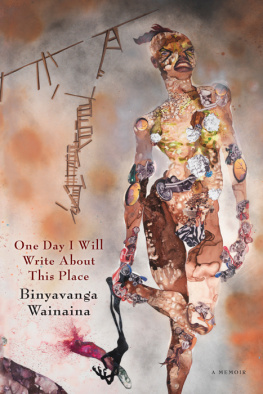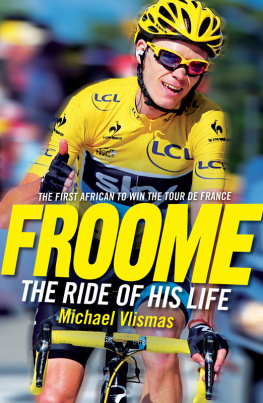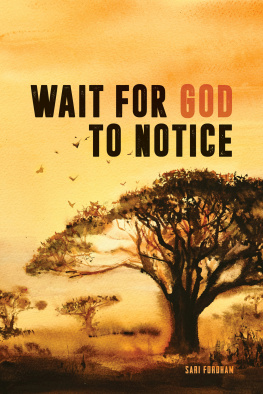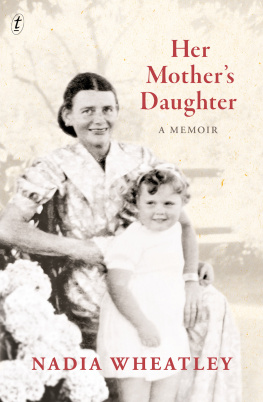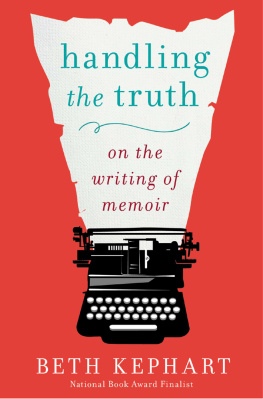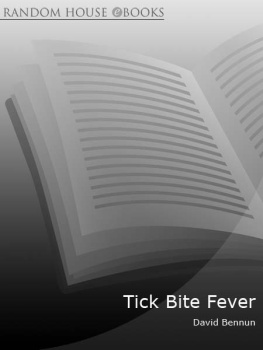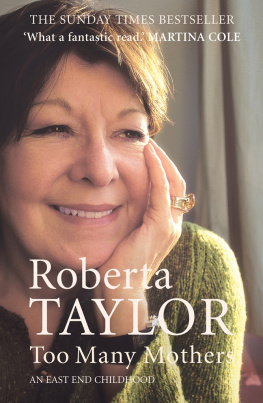One Day I Will
Write About
This Place

One Day I Will
Write About
This Place
A Memoir
Binyavanga Wainaina
G RAYWOLF P RESS
Copyright 2011 by Binyavanga Wainaina
A travel story that was the genesis of this book appeared in the Sunday Times (South Africa) in 1997. A substantially expanded and revised version of that story was published in two parts as Coming Home, a short memoir, on g21.net in 2002. Portions of chapters 4 and 19 first appeared, in a different form, in Gods and Soldiers: The Penguin Anthology of Contemporary African Writing, ed. Rob Spillman (New York: Penguin, 2009). Portions of chapters 20 and 23 first appeared, in a different form, in Granta 114 (2011). Chapter 30 first appeared, in a different form, in Chimurenga 10 (2006). Chapter 31 first appeared, in a different form, in The Thinking Fans Guide to the World Cup, ed. Matt Weiland and Sean Wilsey (New York: Harper Perennial, 2006).
This publication is made possible by funding provided in part by a grant from the Minnesota State Arts Board, through an appropriation by the Minnesota State Legislature, a grant from the National Endowment for the Arts, and private funders. Significant support has also been provided by Target; the McKnight Foundation; and other generous contributions from foundations, corporations, and individuals. To these organizations and individuals we offer our heartfelt thanks.

This book is made possible through a partnership with the College of Saint Benedict, and honors the legacy of S. Mariella Gable, a distinguished teacher at the College. Support has been provided by the Manitou Fund as part of the Warner Reading Program.
Published by Graywolf Press
250 Third Avenue North, Suite 600
Minneapolis, Minnesota 55401
All rights reserved.
www.graywolfpress.org
Published in the United States of America
Printed in Canada
ISBN 978-1-55597-591-3
Ebook ISBN 978-1-55597-034-5
2 4 6 8 9 7 5 3 1
First Graywolf Printing, 2011
Library of Congress Control Number: 2011923190
Cover design: Kyle G. Hunter
Cover art: Wangechi Mutu, My Strength Lies, 2006. Ink, acrylic, photo collage, contact paper, on Mylar, 228.6 x 137.2 cm. Image courtesy of the Saatchi Gallery, London. Wangechi Mutu, 2006.
To Mum in Heaven & Babs in Naks
To Jim, to Ciru (unajua ka-magic ketu kadogo), to
Chiqy
To Wee William Wilberforce, to Bobo, to Mary Rose, to
Emma, to Eddy
To ANYou will know
Much much love and thanks.
Some names have been changed
to protect the privacy of individuals.
Chapter One
It is afternoon. We are playing soccer near the clothesline behind the main house. Jimmy, my brother, is eleven, and my sister, Ciru, is five and a half. I am the goalie.
I am seven years old, and I still do not know why everybody seems to know what they are doing and why they are doing it.
You are not fat. Thats what Mum says to me all the time. You are plump.
Ciru has the ball. She is small and thin and golden. She has sharp elbows, and a smile as clean as a pencil drawing. It cuts evenly into her cheeks. She runs toward Jimmy, who is tall and fit and dark.
She is the star of her class. It is 1978, and we are all in Lena Moi Primary School. Last term, Ciru was moved a year forward. Now she is in standard two, like me, in the class next door. Her first term in standard two, she beat everybody and topped the class. She is the youngest in her class. Everybody else is seven.
I stand still between the metal poles we use as a makeshift goalmouth watching Ciru and Jim play. Warm breath pushes down my nostrils past my mouth and divides my chin. I can see the pink shining flesh of my eyelids. Random sounds fall into my ears: cars, birds, black mamba bicycle bells, distant children, dogs, crows, and afternoon national radio music. Congo rumba. People outside our compound are talking, in languages I know the sounds of, but do not understand or speak, Luhya, Gikuyu.
My laugh is far away inside, like the morning car not starting when the key turns. In school, it is always Ciru number one, blue and red and yellow stars on every page. It is always Ciru in a white dress giving flowers to the guest of honorMr. Ben Methuon Parents Day. If I am washing with her, we are splashing and laughing and fighting and soon we are in a fever of tears or giggles.
She twists past Jimmy, the ball ahead of her feet, heading for me. I am ready. I am sharp, and springy. I am waiting for the ball. Jimmy runs to intercept her; they tangle and pant. A few moments ago the sun was one single white beam. Now it has fallen into the trees. All over the garden there are a thousand tiny suns, poking through gaps, all of them spherical, all of them shooting thousands of beams. The beams fall onto branches and leaves and splinter into thousands of smaller perfect suns.
I laugh when Ciru laughs and I find myself inside her laugh, and we fall down holding each other. I can feel her laughter swelling, even before it comes out, and it swells in me too.
I know how to move with her patterns, and to move with Jimmys patterns. My patterns are always tripping on each other in public. They are only safe when I am alone, or when I am daydreaming.
Ciru laughs loud, her mouth wide and red. The sound jumps toward me, flapping sheets of sound, but I am lost. Arms and legs and ball are forgotten. The thousand suns are breathing. They inhale, dim and cool into the leaves, and I let myself breathe with them; then they puff light forward and exhale, warming my body. I am about to let myself soak inside this completely when I am captured by an idea.
The sun does not break up into pieces.
It does not break up into disembodied parts when it falls into trees and things. Each piece of the sun is always a complete little sun.
I am coming back into my arms and legs and the goalmouth, ready to explain the thousand suns to Jimmy and Ciru. I am excited. They will believe me this time. It wont seem stupid when I speak it, like it often does, and then they look at me, rolling their eyes and telling me that my marbles are lost. That I cansaythatagain. They are coming close. Jimmy is shouting. Before I fully return to myself, a hole in my ear rips open. The football hits the center of my face. I fall.
Goaaaaal. A thousand suns erupt with wet laughter; even the radio is laughing. I look up and see them both leaning over me, dripping sweat, arms akimbo.
Jimmy rolls his eyes and says, Youve lost your marbles.
Im thirsty, says Ciru.
Me too, says Jim, and they run, and I want to stand and run with them. My face hurts. Juma, our dog, is licking my face. I lean into his stomach; my nose pushes into his fur. The sun is below the trees, the sky is clear, and I am no longer broken up and distributed. I scramble and jump to my feet. Juma whines, like a car winding down. I pump my feet forward, pulling my voice out and throwing it forward to grab hold of their Thirst Resolution.
Hey! I shrill. Even me I am thirsty!
They dont hear me.
They are headed away from the kitchen, and I follow them into the long clumps of uncut grass at the top of the garden, Juma at my heels, as they weave in and out of Babas tractors, swerve to avoid dog shit, run through shade and fading sun, past little eruptions of termites in Kikuyu grass, and forgotten heaps of farm spare parts piled behind the hedge that separates the main house from the servants quarters. Then they turn, shouting hi to Zablon, the cook who is washing dishes outside in his white vest and blue trousers and Lifebuoy soap and charcoal smell. I shout hi too, now flowing well into their movements. They stop, then turn to our regular racetrack down the path from the servants quarters to the kitchen.

